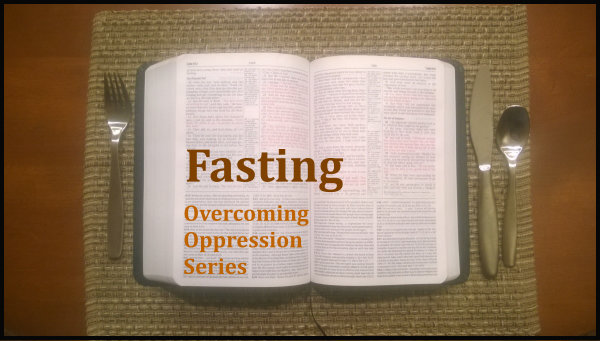By Tyson Thorne

Fasting is a practice that the western evangelical church has fallen away from, and it is a perilous fall. Our understanding of fasting is very Old Testament, which is that it is a legal practice rather than an act of faith. This belief is far from the truth. Was it legalism that caused Moses to eat nothing and drink nothing for 40 days while on Mount Sinai (Exodus 34.28)? Was it legalism that caused Jesus to do the same (Luke 4.1-.4)? In both instances the answer is “no”; the truth is that fasting creates a powerful connection with God, if we let it.
It is true that a few fasts are commanded by God in the Old Testament. Traditionally these fasts hold many purposes: mourning, remembrance, repentance and worship (Leviticus 16.29-.30). These purposes still hold value, but it is what is accomplished by the act itself, if conducted with a proper understanding of what fasting is about, that is noteworthy.
We’ve mentioned Moses already, who did not eat or drink anything for 40 days. Actually, though the Exodus passage only mentions this once, Moses performed this feat three times while the Israelites camped at the base of Mount Sinai. How is it possible for a man to go 40 days without water? Ordinarily, it’s not. Moses was sustained another way; Moses was sustained by God. Something about being in the presence of God makes the normal function of eating and drinking unnecessary. We don’t have time to explore this truth in depth, but it stems on the fact that humanity is more than a biological machine. We have a physical body that, due to the curse of Adam, will return to the ground. We also have an eternal soul that can live apart from the body. Our soul is always the chief concern of God.
Both Moses and Jesus were sustained in their supernatural fasts not by food but by the presence of God. Notice how Jesus answer’s the devil’s first temptation to break his fast, “Man does not live by bread alone, but by every word that proceeds from the mouth of God” (Matthew 4.4). Jesus is quoting Deuteronomy 8.3 and is revealing that through the fast he is demonstrating his reliance on God alone for his life. This is the key to the fast, reliance upon God.
When Adam and Eve ate of the forbidden tree they experienced spiritual death (separation from God) and physical death began working in their body to bring about its eventual conclusion. Through Jesus we are offered first the restoration of our spiritual life and later will receive an immortal, incorruptible body to complete our sanctification, making us whole again. Through fasting we show our faith in God for our very lives and depend upon Him alone to sustain us. This act of humility has a number of positive benefits for the believer.
First, it reveals our trust in God. Second, such a display of dependence creates a powerful connection with our Lord. Third, it provides for us spiritual sustenance we cannot receive any other way, a sustenance that, fourth, bolsters the image of God in our lives as we become more like Him. Does any of this sound like legalism? On the contrary, it is a completely relational act that increases the bond between us and our Creator and is a practice intended not for the saintly but for all believers.
Due to these positive benefits of fasting we also find the spiritual strength to overcome our adversary. Temptation to sin is reduced because we do not want to kill the closeness we have with our Lord. That closeness also makes us more sensitive to the Holy Spirit’s guidance in our lives, reducing the likelihood of falling for one of the devil’s traps. In our quest to draw nearer to God we take sin more seriously and recognize that both spiritual and physical death always accompany sin. They are inseparable twins and even though I do not believe they are strong enough to completely separate the believer from God, they can damage our relationship with him dramatically.
Are you ready to fast? Then you need to know how. In the Bible there are two primary forms of fasting, and both including not eating or drinking. The first fast lasts from sunrise to sunset which, depending on the time of year, could be a few hours (winter solstice) or as many as 16 hours (summer solstice). The second fast is from sunset (when there is still some light) to sunset the next day (when at least three stars can be seen in the sky). Nowhere does the Bible command a longer fasting period. Those who fast regularly recommend that it is best to eat a large, protein rich meal just before the fast begins. This helps control your food cravings throughout the day. They also recommend staying away from salty foods that will increase your thirst.
As mentioned at the beginning of this article, fasting may be performed for many reasons. We may fast so that God will know how serious we are about our prayers, and those prayers could be for many different things including healing (for ourselves or others), for repentance of sins (to show how broken we are by them), or even to show God how important a loved one was to us in life (to mourn a death). Many have fasted in an attempt to dissuade God from judging their nation. Whatever the reason, know that God not only hears your prayers but rewards the practice with the benefits mentioned above. We may also fast simply to show God our reliance upon him, or even as preparation for entering a spiritual battle. There are many reasons to fast, find yours and begin practicing this art of communion with your Creator.
|
|